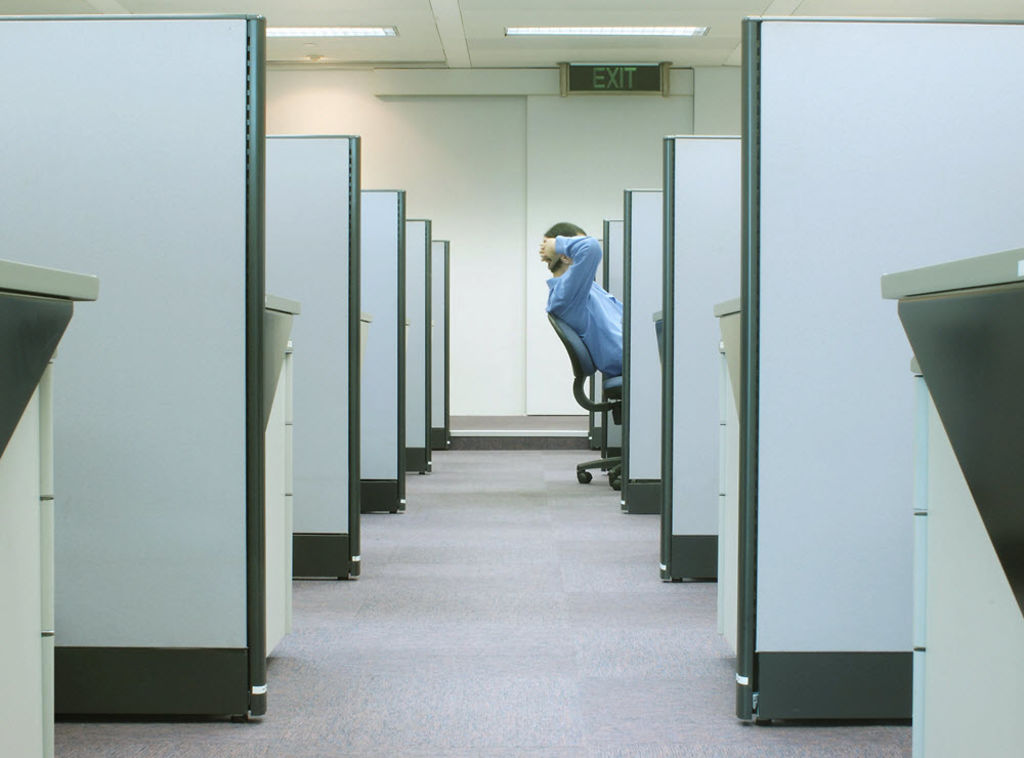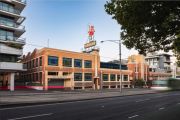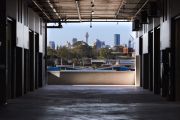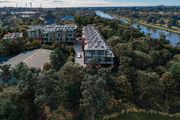
Five office trends that a new generation of workers might not recognise
If you’re a millennial who has entered the corporate workforce in recent years, you might gasp at the cubicle-packed offices your parents were used to.
Likewise, the next generation of office users might not recognise the offices we inhabit now, with workplace trends shifting so rapidly.
And according to commercial office design firm Axiom Workplaces’ head of design Michael Hala, that’s because businesses realise that to attract and retain staff, the modern work environment needs to promote innovation, creativity, productivity and increased health and wellbeing.
Here are five once-standard features of the workplace that have faded or are on their way out.
Smoking
Remember when smoking was allowed inside at work? Or maybe you’ve only heard about it from an older colleague.
Back in the day, it was common for people to light up at their desks and during staff meetings in conference rooms.
These days smoking in enclosed workplaces is banned across Australia, but many offices still have their own smoke-free policies on top of this to better comply with workplace safety laws.
This means that at most office buildings you’re also not allowed to smoke outside near the entrances.
Reserved car spaces
While many still consider having a reserved parking spot a symbol of status in the workplace, the days of this type of thinking are numbered, with companies embracing collaboration over hierarchy.
Not only are reserved car spaces a potential sign of hierarchy in the workplace, new building features promoting employee wellness are also replacing the need for allocated parking spots.
“Assigned parking spaces are becoming a thing of the past, and instead we see more end-of-trip facilities where you can store your bicycle, then take a shower before you sit down to start your workday,” Mr Hala said.
And with flexible working arrangements gradually becoming more mainstream, there will be less of a need to provide reserved parking spaces for employees if they don’t turn up to the office every day.
Personal offices
Open-plan offices are nothing new, but it’s clear that employees are seeing their C-suite executives and managers a lot more, as they lurk out of their personal offices.
These days, employers want leaders and workers to feel as integrated into their team as possible, and one way to do this is to make them physically work together.
Gone are the days when every manager had their own private space with walls and a door to call home. Today, it’s all about the democratised workspace.
Fixed desks
The comfort and familiarity of having a desk to call our own could soon be making an exit, with many businesses exploring activity-based working and reconfigurable workstations, where furniture can be moved around to suit the individual.
“There will be further uptake in flexible or agile working – fixed desks, in general, are disappearing and open, collaborative spaces are replacing the vertical hierarchy in office towers,” Mr Hala said.
The idea behind all this is to make the office a place where people want to be, he added, primarily by allowing the individual to decide themselves how they want to work and what their workspaces look like.
“We will find more employee input and engagement in the actual process of a workplace transformation.”
Beer fridge
Some employers offer booze at work as a perk to attract progressive young talent, and this trend can still be seen in many offices.
But as studies show, Australians are starting to turn their backs on alcohol, or at least maintain more modest drinking habits. The office beer fridge could soon be gathering dust as workers opt for healthier work perks such as yoga classes.
Having a beer fridge at work could also encourage a heavy drinking culture, which some health-conscious employers may want to stay away from.
Some companies that do provide alcohol in the office try to control consumption by limiting drinks to after 5pm, while others make employees record their alcohol consumption at work online.










